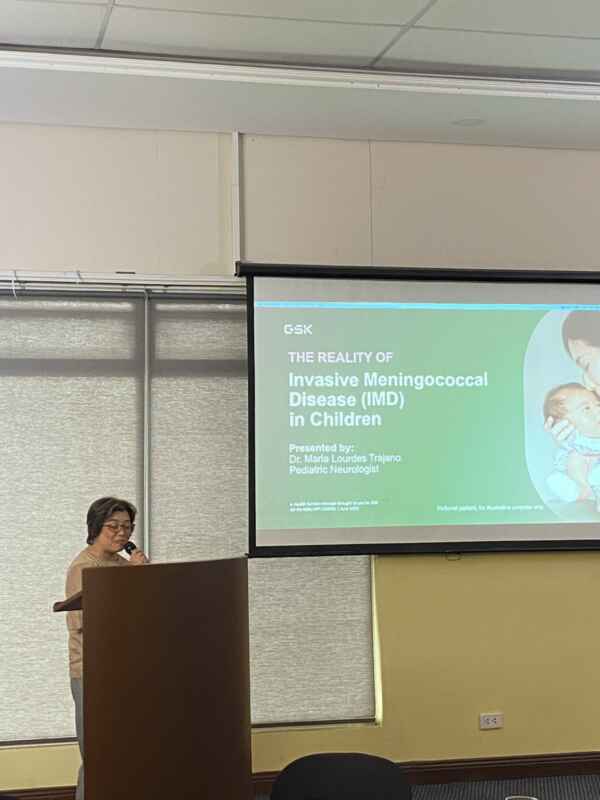DOCS WARN OF INVASIVE MENINGOCOCCAL DISEASE IN KIDS

Medical experts are raising awareness on Invasive Meningococcal Disease (IMD) among young children. Baguio General Hospital and Medical Center physicians, Maria Lourdes Trajano, Pediatric Neurologist, and Mary Crist Delos Santos-Jamora, Pediatric Infectious Diseases, discussed the pressing health issue of IMD in a forum on June 13. “IMD is rare but extremely serious. It progresses quickly and can lead to death or permanent disabilities such as hearing loss, brain damage, or limb amputations,” Trajano said, emphasizing the need for early detection and timely treatment.
The forum, titled “Saving Moments of Possibilities: The Reality of Invasive Meningococcal Disease (IMD) in Young Children,” aimed to strengthen public understanding of IMD and to reach families with young children, who are at higher risk due to their developing immune systems. Organizers hope the forum will encourage more proactive health measures in the community. IMD-infected is a life-threatening illness and those infected can die within 24 hours if not treated or possibly suffer long-term complications such as hearing loss, learning delays, or physical disabilities. The Philippines has the highest IMD mortality rate with a 50% fatality rate compared to Vietnam’s 8.7-34.7% and Thailand’s 37.5%.
Jamora said, “Many parents are unaware of the availability and importance of meningococcal vaccines. Education and access are key to reducing the risk,” emphasizing that vaccination remains the most effective protection against the disease. IMD is an infection caused by the organism Neisseria meningitidis. Neisseria meningitidis is classified into 13 serogroups based on the organism’s component; there are 6, which are A, B, C, Y, W, and X, that cause nearly all life-threatening cases globally.
Jenny Faith Cruz
Health
DOCS WARN OF INVASIVE MENINGOCOCCAL DISEASE IN KIDS
June 22, 2025
NATIONAL KIDNEY MONTH, TINALAKAY ANG KAHALAGAHAN NITO
June 14, 2025
DENGUE, TYPHOID FEVER TOP LIST OF DISEASES IN CORDILLERA
June 14, 2025
DOH-CAR WARNS OF ‘WILD’ DISEASES THIS RAINY SEASON
June 8, 2025
PHILHEALTH’S KONSULTA MAKES SIGNIFICANT STRIDES IN CAR
April 26, 2025






